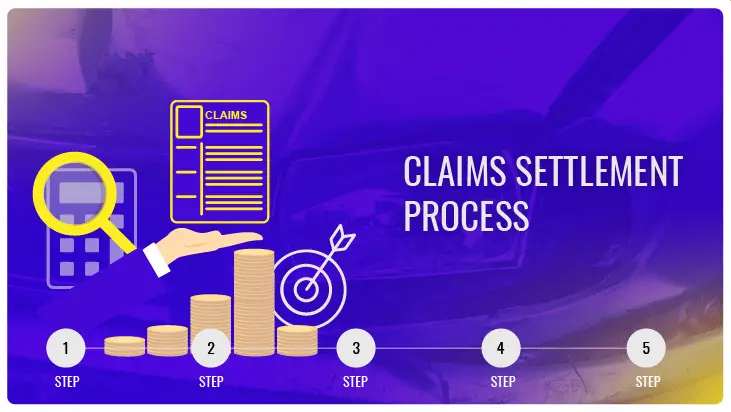Insurance companies often settle claims before a deposition; however, how this usually occurs varies according to the individual case. On average, data from the National Center for State Courts shows that more than half of all civil cases are resolved before trial. Insurance companies often attempt to settle with the claimant before a lawsuit or depositions are taken to avoid further litigation and financial losses.
How Often Do Insurance Companies Settle Before Deposition?
In 2023, the Insurance Research Report claims companies settled approximately 40% to 50% of cases before deposition. Insurance companies often settle claims before depositions to save on litigation costs, resolve cases more quickly, mitigate the risk of uncertain court decisions, maintain their privacy and reputation, and improve policyholder satisfaction.

The specific rate of pre-deposition settlements can vary greatly depending on the insurance company, type of insurance, nature of the claim, and jurisdictional regulations.
Insurers often prefer to settle claims before depositions for several reasons:
- Cost-effectiveness: Litigation can be expensive, especially when it involves depositions. We are settling a case before depositions, which can help insurers save on legal costs such as attorney, court, and expert witness fees.
- Time efficiency: Settling before depositions helps insurers resolve claims more quickly. This can free up resources and allow the company to focus on new or more complex cases.
- Risk mitigation: By settling before depositions, insurance companies can avoid the uncertainty of a jury or judge’s decision, which could potentially result in much higher payouts.
- Privacy and reputation: Insurance companies might settle to avoid the publicity that could come from a court case, significantly if the case could potentially damage their reputation.
- Policyholder satisfaction: Promptly settling cases can increase policyholder satisfaction and reduce the claimant’s emotional and financial stress.
Please note that the actual rate of pre-deposition settlements can vary widely depending on the specific insurance company, the type of insurance (e.g., auto, home, life), the nature of the claim, and other factors. In addition, insurance laws and regulations can vary by jurisdiction, which can also affect settlement practices. Always consult a qualified legal or insurance professional for advice on a specific situation.
Whether or not to settle before taking depositions is usually based on several factors, including the strength of the claimant’s case, their chances of success at trial, and whether they have a viable legal theory that could result in significant damages being awarded. Insurance companies may also consider the cost of defending against a claim compared to what it would cost to make making. Suppose an insurance company believes there is a reasonable chance they will lose at trial, or they think they could be exposed to high damage awards in that case. In that case, they may settle before depositing to limit their liability exposure.
Insurance companies may also choose to settle before decoding, which could create public relations benefits for them. By deciding early and agreeing not to take depositions or go through a lengthy court process, an insurance company can preserve its reputation as a fair-dealing business partner who values each customer’s rights and interests over profits or publicity. Settling quickly can also help preserve resources by avoiding costly discovery procedures and potentially lengthy court proceedings that could drag on for months or even years.
In addition, when insurance companies decide whether or not to settle before taking deposition testimony from witnesses or other parties involved in the case, they must also consider potential bad faith claims brought by claimants who feel their rights were breached during negotiations with insurers. If an insurer fails to treat claimants fairly when attempting to negotiate a settlement agreement without taking depositions – such as making unreasonable demands that violate state laws – then those claimants may have legal recourse available, which could result in substantial penalties against the insurer.
The insurance settlement process generally involves the following steps:
- Claim Initiation: The insured person files a claim with the insurance company, providing necessary information about the incident that caused the loss or damage.
- Investigation: The insurance company reviews the claim and may conduct an investigation, which can involve interviewing the claimant, witnesses, and other involved parties, reviewing documents and records, inspecting property damage, and so on.
- Assessment of Damages: The insurer determines the extent of the damages or losses. This can involve getting estimates or appraisals, consulting with experts, reviewing medical reports, and other methods.
- Determination of Coverage: The insurance company verifies whether the policy covers the loss or damage and determines the coverage available. They also check for policy exclusions or conditions that might affect the coverage.
- Offer: If the insurer agrees that the claim is valid and covered, it will typically offer the insured an initial settlement offer based on the determined value of the covered loss minus any deductibles.
- Negotiation: The claimant can accept the insurer’s initial offer or negotiate for a higher amount if they believe the offer is too low. Negotiations can involve back-and-forth discussions and require the claimant to provide additional information or documentation.
- Settlement Agreement: Once both parties agree on a settlement amount, they typically enter into a settlement agreement. This legal document outlines the settlement terms, including the payment amount and the claimant’s agreement to release the insurer from further liability.
- Payment: After the settlement agreement is signed, the insurer issues payment to the insured or other parties as specified in the contract.
- Closure: Once payment is made, the claim is generally considered closed unless conditions in the settlement agreement require further action.
Insurance companies sometimes choose to settle before depositing, depending on various factors associated with the individual case. However, insurers must consider many considerations when determining whether settling early is worth it in terms of preserving time and money while still abiding by applicable laws and protecting against potential bad faith claims by disgruntled claimants.
